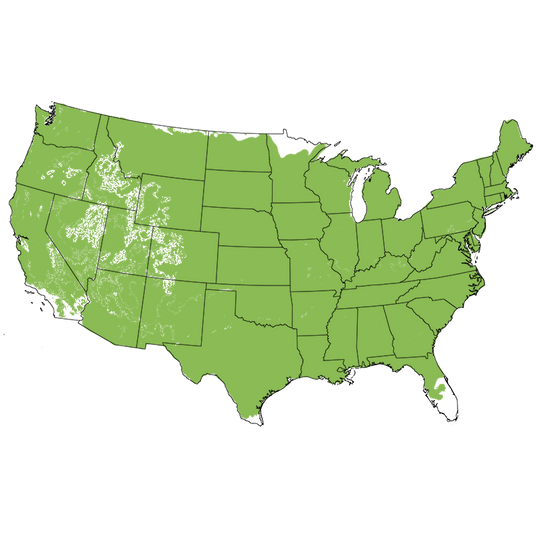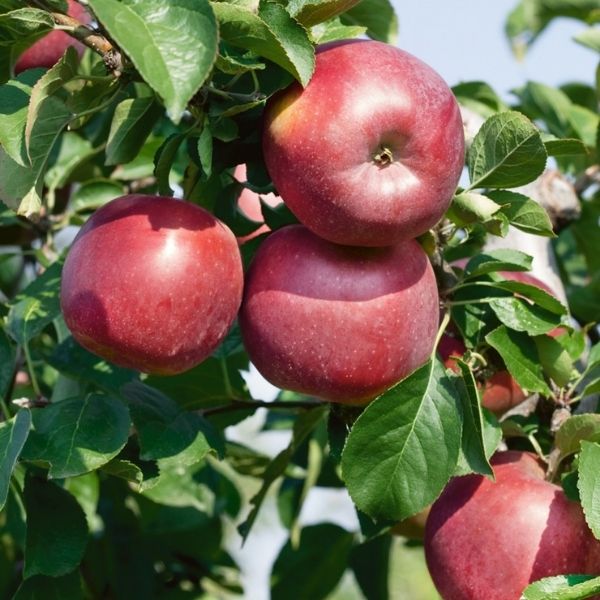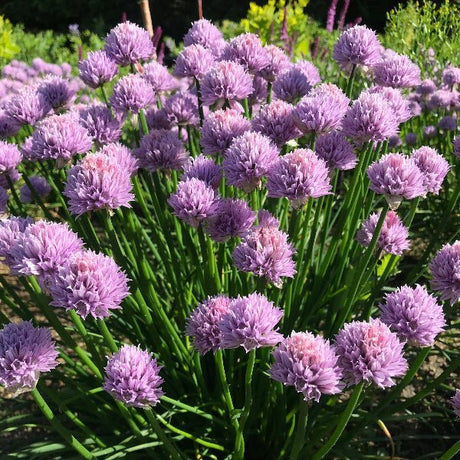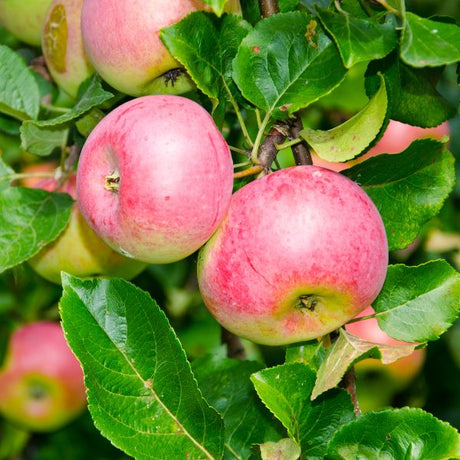Enterprise® Apple
Malus x 'Borkh'
- Stay Protected with Plant Sentry ™
Enterprise® Apple is backordered and will ship as soon as it is back in stock.
Plant Sentry™
Plant Sentry™

Plant Sentry™ Protected
Your order is protected by our compliance system that:
- Prevents restricted plants from shipping to your state
- Ensures plants meet your state's agricultural requirements
- Protects gardens from invasive pests and diseases
Delivery and Shipping
Delivery and Shipping
Delivery and Shipping
Fast, Safe Plant Delivery
Ships in 3-4 business days • Tracking provided • Weather protected
| Under $50 | $9.99 |
| $50 - $99.99 | $14.99 |
| $100 - $149.99 | $16.99 |
| $150 - $198.99 | $24.99 |
| $199+ | FREE |
✓ Zone-specific timing • ✓ Professional packaging • ✓ Health guarantee
Understanding Plant Options
Nature Hills offers plants in two main formats:
- Container Plants: Grown in pots with soil, sized by container volume and plant age
- Bare Root Plants: Dormant plants without soil, sized by height measurements
Container Plant Sizes
Container sizes indicate plant age and growing capacity rather than liquid volume equivalents. Our containers follow industry-standard nursery "trade gallon" specifications, which differ from standard liquid gallon measurements.
Young Plants (6 months to 18 months old)
| Container Size | Actual Volume | Metric Equivalent |
|---|---|---|
| 2" x 2" x 3" | 0.18 - 0.21 dry quarts | 0.20 - 0.23 dry liters |
| 4" Container | 0.31 - 0.87 dry quarts | 0.35 - 0.96 dry liters |
| 4.5" Container | 0.65 dry quarts | 0.72 dry liters |
| 6" Container | 1.4 dry quarts | 1.59 dry liters |
| 1 Quart | 1 dry quart | 1.1 dry liters |
| 5.5" Container | 1.89 dry quarts | 2.08 dry liters |
Established Plants (18 months to 2.5 years old)
| Container Size | Actual Volume | Metric Equivalent |
|---|---|---|
| 2 Quart | 2 dry quarts | 2.2 dry liters |
| #1 Container | 2.26 - 3.73 dry quarts | 2.49 - 4.11 dry liters |
| 5" x 5" x 12" | 3.5 - 4.3 dry quarts | 3.85 - 4.74 dry liters |
Mature Plants (2-4 years old)
| Container Size | Actual Volume | Metric Equivalent |
|---|---|---|
| #2 Container | 1.19 - 1.76 dry gallons | 5.24 - 7.75 dry liters |
| #3 Container | 2.15 - 2.76 dry gallons | 8.14 - 12.16 dry liters |
Large Plants (3-5 years old)
| Container Size | Actual Volume | Metric Equivalent |
|---|---|---|
| #5 Container | 2.92 - 4.62 dry gallons | 12.86 - 20.35 dry liters |
| #6 Container | 5.25 - 6.01 dry gallons | 23.12 - 26.42 dry liters |
| #7 Container | 5.98 - 6.53 dry gallons | 26.34 - 28.76 dry liters |
Bare Root Plants
Bare root plants are sold by height from the root system to the top of the plant. Plants may exceed minimum height requirements.
Common Sizes:
- Trees: 1 foot, 2 feet, 3 feet, 4 feet, 5 feet, 6 feet
- Shrubs & Perennials: 1 foot, 18 inches, 2 feet
Important Notes
Container Volume Specifications
- Trade Gallon Standard: Our containers follow industry-standard "trade gallon" specifications established by the American National Standards Institute (ANSI Z60.1) for nursery stock
- Volume Variations: Actual soil volume may vary due to plant root systems and growing medium settlement
- Age Indicators: Container size primarily indicates plant age and maturity rather than liquid volume equivalents
Growing Conditions
- Plant size can vary based on variety and growing conditions
- Container size helps indicate plant maturity and establishment level
- Larger containers generally mean more established root systems and faster landscape establishment
Seasonal Availability
- Bare root plants are available seasonally when dormant
- Container plants are available throughout the growing season
- Specific varieties may have limited availability in certain sizes
Questions?
For questions about specific plant sizes or availability, please contact our plant experts who can help you choose the right size for your landscape needs.
Plant Highlights
Enterprise® Apple highlights at a glance!
-
Botanical Name
-
Brand
-
Growing Zones4, 5, 6, 7, 8, 9
-
Growth RateModerate
-
Mature Height
-
Mature Width
-
Leaf Color
-
Flower Color
-
Pollinator FriendlyYes
-
Pollinator Required
-
Bloom PeriodEarly Spring, Late Spring
Characteristics
Where To Plant
When To Prune
- Late Winter
Water & Moisture Needs
- Moderate
Sunlight Needs
Soil Needs
- Well Drained

Growing Zones
Wonderfully disease-resistant Enterprise® Apple (Malus x domestica 'Borkh') tree produces an abundance of excellent fruit for fresh eating, cooking and keeping. Late season harvest and long keeping time make this a valuable addition to your orchard or Edible Landscape!
These are healthy, vigorous trees that are disease-resistant to cedar-apple rust , fire blight and powdery mildew. Enterprise apples are large, glossy, crisp and dark red and stay crisp for up to six months in storage.
Planting and Application:
Harvest late in the season, and use these firm apples in pies, cobblers and other baked goods. Store the rest...they'll sweeten up after one to two months for a wonderful wintertime snack.
- Use another mid-season bloomer to pollinate. Golden Delicious Apple tree from NatureHills.com is recommended as a pollinator for Enterprise Apple tree.
- With a complex pedigree, Enterprise Apple parentage includes both McIntosh, Rome Beauty, Crabapple and Golden Delicious. The taste is very spicy and rich when tree-ripe..natural fruit sugar levels develop over time in storage.
- With a vigorous, spreading growth habit, Enterprise is a delightful fruiting tree that requires little care. It features reliable cropping and is easy to grow.
- The fruit has a long hang time, even when ripe. That makes it easier to get outside and pick your harvest at your convenience.
- Enterprise Apple trees are a successful introduction from the cooperative breeding program of the Indiana, Illinois, and New Jersey Agricultural Experiment Stations. It's a time-tested cultivar that brings value to any orchard planting.
#ProPlantTips for Care:
Apple trees perform best in full sun with at least six hours of sunlight a day. Choose a planting site with well-drained soil and good air circulation; include symbiotic Nature Hills Root Booster in the planting hole as life-long support of the tiny feeder roots.
- Supply consistent water to Apple trees during fruit development. Poke your finger into the soil up to the second knuckle near the base of your tree and apply water when it starts to get dry.
- Read NatureHills.com Garden Blog for tips on how to prune your fruit trees. Prune in late winter to establish the framework of structural branches; prune to control size in summer if you want to keep your trees smaller.
- Add a three-inch layer of mulch around the trunk, then pull it back away from touching the stems. Feed your fruiting trees with high-quality fertilizer in early spring; reapply according to the label directions.
Enterprise® Apple Tree Frequently Asked Questions
When to Plant Enterprise® Apple Trees
Planting Bareroot trees as soon as you can dig a hole in spring and until hot weather, the earlier the better. Plant container Apple trees throughout the growing season with complete success - that is the benefit of container plants - to extend the planting season. Your County Agricultural Extension Office is a great resource for first and last frost dates in your area.
How to Plant Enterprise® Apple Trees
Dig a large hole only as deep as needed to accommodate the bareroot or container root ball, and twice as wide. Add Nature Hills Root Booster to speed root establishment. Remove the pot or bag and situate it into the hole so the top of the soil (soil line if bareroot), is level with the new location's soil being careful not to plant too deep. Water in again very well and backfill with the same soil you dug up, tamping down gently to ensure there are no air pockets.
Top off with a 3-4 inch thick layer of Arborist mulch. Consider staking your tree to keep its trunk growing straight for the first year to ensure it stands tall against strong winds and drifting snow.
When to Prune Enterprise® Apple Trees
Trim off any broken branches from delivery as soon as you take them out of the box. Prune and trim apple trees while dormant, in late winter or early spring, before you see new growth.
How to Prune Enterprise® Apple Trees
Dormant prune to:
- Remove any double leaders or narrow crotch angles
- Eliminate any crossing branches
- Thin interior branching and leave the fruiting spurs and strong branches in place opening up the canopy
- Branching at least 24-36 inches above the ground
Prune Apple trees in the summer to:
- Control size and shape by reducing the length of longer new growth on vigorous trees
- Remove water sprouts on the main trunk or older branches in the crown
- Remove suckers at the base of the trunk
- Thin fruit during heavy years on established trees
How to Care for Enterprise® Apple Trees
Growing an apple tree is easy when proper soil, good drainage, attention to moisture, and regular fertility are maintained. Once you've chosen an apple tree that works for your climate, in the size you need for your landscape, and its pollinator (if needed), then you've accomplished half the battle!
- Apple trees do best in full sun and well-drained soil
- Water your apple trees when they get dry - especially during the fruit production stage, and drought periods to keep it stress-free
- Use arborists' wood chips to mulch over the roots of your apples and have your soil tested to see what your soil may be lacking before adding fertilizers
- Maintenance pruning and shaping
Apple trees will tolerate a wide range of soils, so long as water and nutrients are not limited and the pH level is adequate.
How to Fertilize Enterprise® Apple Trees
For the first year, water alone is most important. It is always best to get a soil test to see what your soil is lacking before adding more fertilizers. Once established, a fertilizer routine may be beneficial. We do offer some excellent slow-release organic options, applied according to the package directions.
Fruit trees need more phosphate and it's possible to apply too much nitrogen which affects the soil's pH. Test soil acidity or alkalinity using a pH Tester.
Fertilize in spring when you first see new growth emerging.
- Don't overdo it
- Phosphates are your friends
- Pay attention to pH in areas with extremely high or low soil pH
- Follow the directions
Enterprise® Apple Tree Pollinating Info
Enterprise® is not self-fruiting and needs a pollinating partner. Pair with one of these varieties:
Harvest Times for Enterprise® Apple Trees
Enterprise®’s are typically ready to harvest in October.
Early-Season? Mid-Season? Late-Season? The terminology can be confusing for new apple tree growers. Weather, climate and your tree determine when it's ripe.
For Apples:
- Early-season is usually June-July
- Mid-season can be August-September
- Late-season can be from late September-November
The growing season consists of spring, summer, and fall, and varies with climate and weather. Areas with longer growing seasons in the warmer hardiness zones can greatly affect the harvest times for each particular apple variety grown in your area. Learn which growing zone you are in.
What Shipping Options Do You Offer?
NatureHills.com works closely with our growers and nursery professionals to ensure we ship when it is most appropriate for your area. Our goal is to deliver the hardiest plants by avoiding extreme high and low temperatures. Check out our shipping schedule for more information and to learn our wills and won'ts when it comes to shipping plants. Find your Enterprise® Apple Tree for sale here at NatureHills.com!








